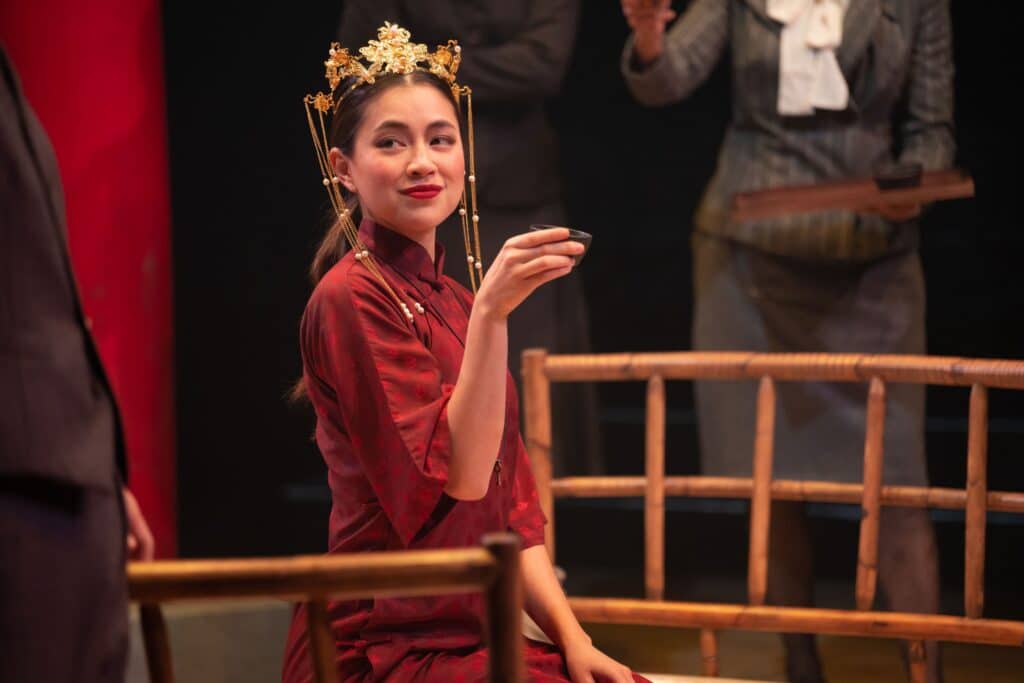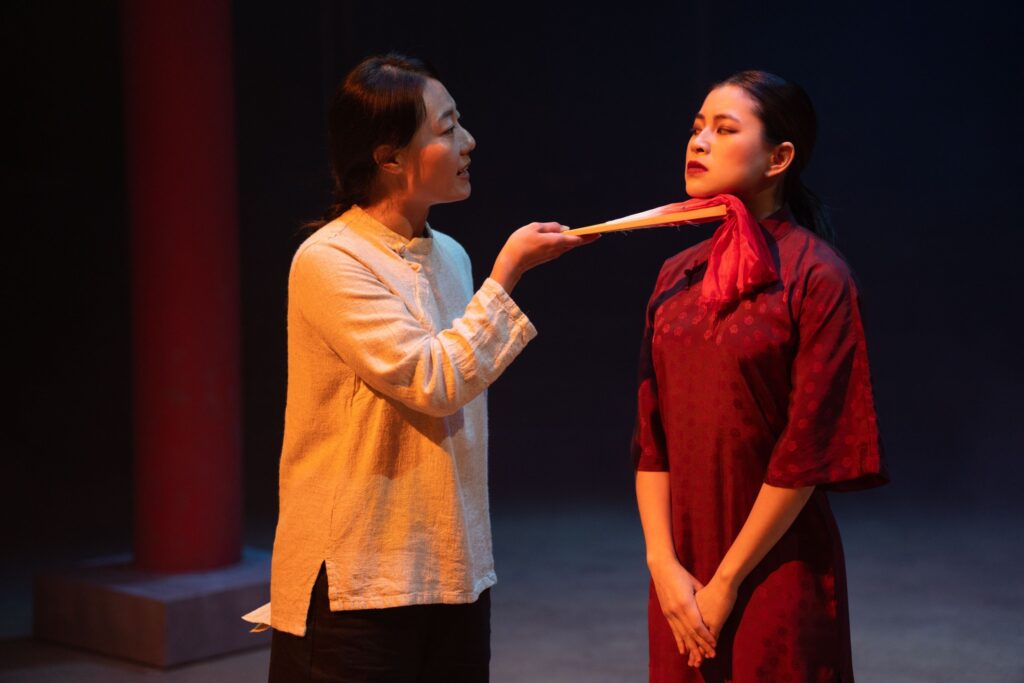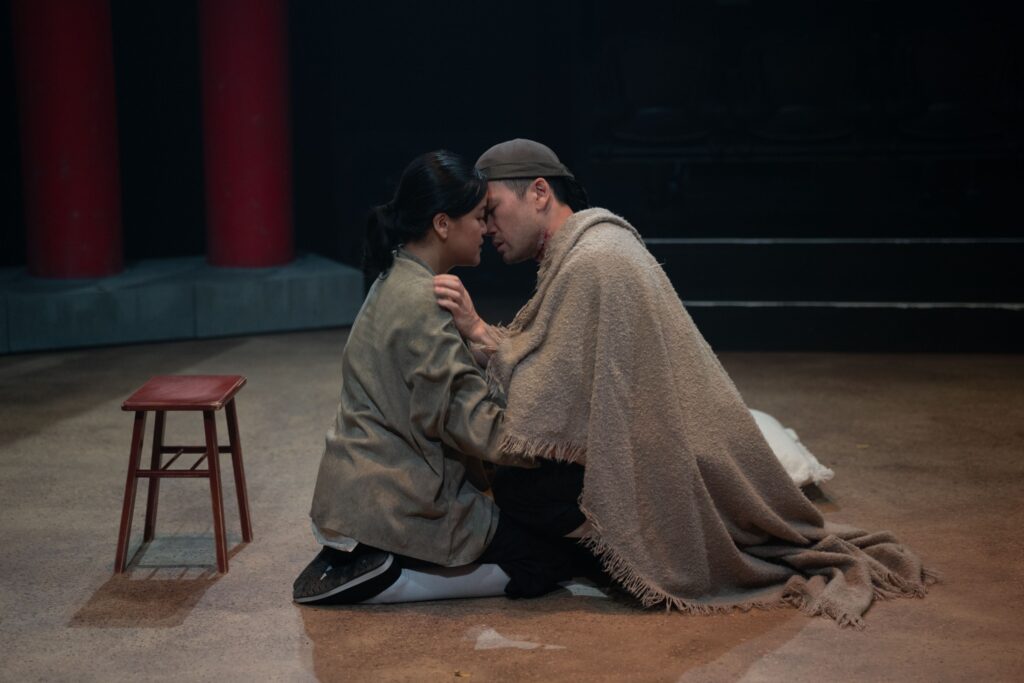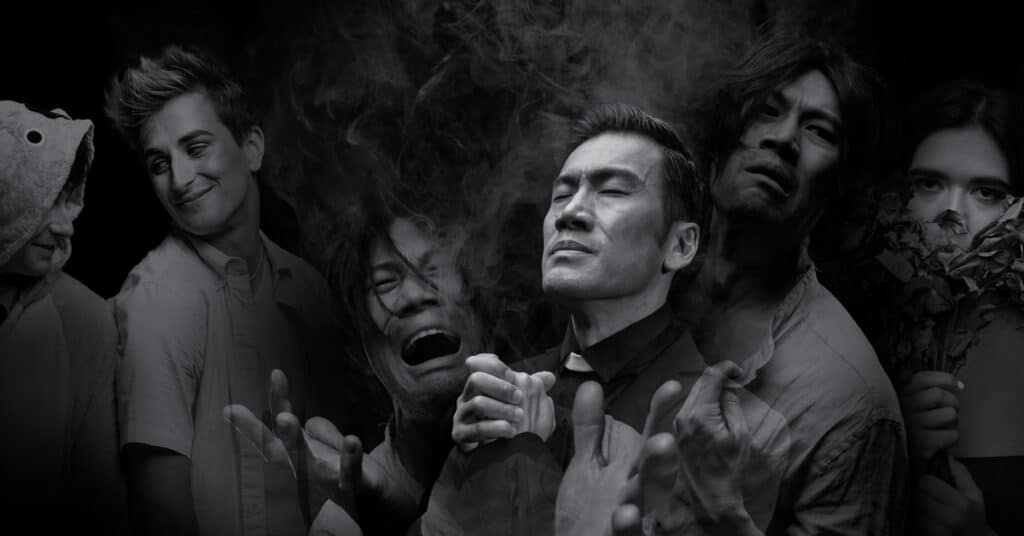The Poison of Polygamy is a new work adapted for the stage by Thai-Australian playwright Anchuli Felicia King from a novella by Wong Shee Ping. Inspired by true events, this morality tale of the Chinese diaspora is set during the Australian Gold Rush and sees debt-ridden opium addict, Sleep-Sick (Shan-Ree Tan) leave his home and his long-suffering wife, Ma (Merlynn Tong) in China to journey to the Australian Goldfields, seeking his fortune.
We spend Act 1 with Sleep-Sick our unlikable protagonist, exploring the poison of opium and his travels to the Gold Fields, however the story comes into its own in Act 2 when Sleep-Sick meets the enticing Tsiu Hei (Kimie Tsukakoshi) and she becomes his concubine. We are then introduced to the true “Poison of Polygamy” in the maelstrom of events that unfold.
As Sleep-Sick (and the Preacher), Shan-Ree Tan brings wonderful scope to these characters. He is an astute study in guile and addiction as Sleep-Sick and embodies the fervour of the Preacher as narrator, switching between these changes of stride with precision.


Merlynn Tong beautifully expresses the sweet naivety of Ma whose nature sharply contrasts that of her selfish, unprincipled husband, whilst Kimie Tsukakoshi is a study in impiety as the bitter and jaded courtesan Tsiu Hei, who gives Sleep-Sick a run for his money.
Ray Chong Nee as Ching brings eloquence to the role of Sleep-Sick’s upstanding, loyal friend while Gareth Yuen as the political Pan delivers his performance with intensity. He also clearly savours the role of the unscrupulous Doctor Ng.
Chan, the ethical law-abiding character who baulks at Sleep-Sick’s involvement in the black market is played with great sympathy and nuance by Silvan Rus. Rus also makes the most of the small but pivotal role of Ma’s cousin, who persuades Sleep-Sick to go to Australia.
Director Courtney Stewart, in her first production as La Boite’s new Artistic Director has masterfully extracted terrific performances from her cast. She has maintained the integrity of the narrative through nuanced characterisations and has clearly given significant attention to the finer plot points.
As La Boite is a theatre in the round, the set is necessarily, minimal. Mood and atmosphere are ably created by the smoke machines which are given a workout for the opium den scenes as well as beautifully creating the ocean during the sea voyage to Australia. Astute lighting design from Ben Hughes ensures flow is maintained between scenes.


Through the examination of the themes of human failing and moral dilemma playwright King has masterfully explored and given voice to what it means to be Chinese in Australia. She makes good use of contemporary language within the orthodox framework of the original 1909 work and manages to bring a lighter touch through some engaging, humorous elements. Maintaining the power of the narrative over the 3-hour run-time means the performers need to work hard and pleasingly, this cast very ably brings continuous focus and energy.
The morality theme notwithstanding, the takeaway from The Poison of Polygamy for me, is how stereotyping the immigrant experience is a trap. As it is ultimately the universal human experience, we are made all the richer for the opportunity to reflect on this through such a well-crafted, theatrical work.
The Poison of Polygamy is a co-production with the Sydney Theatre Company and the production will move to the Wharf Theatre in Sydney following the Brisbane season, which ends on 27 May.

